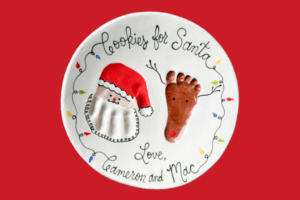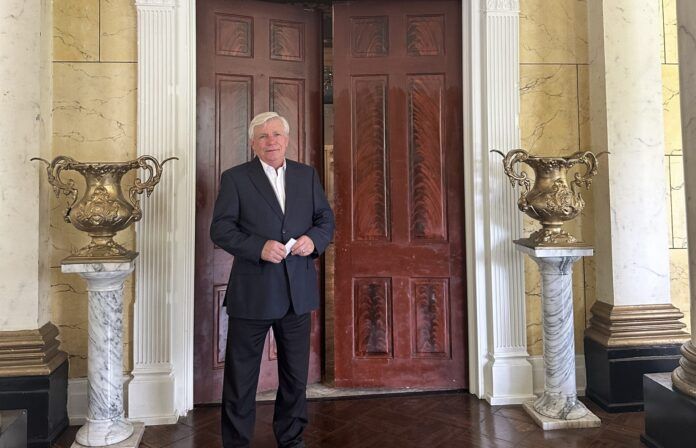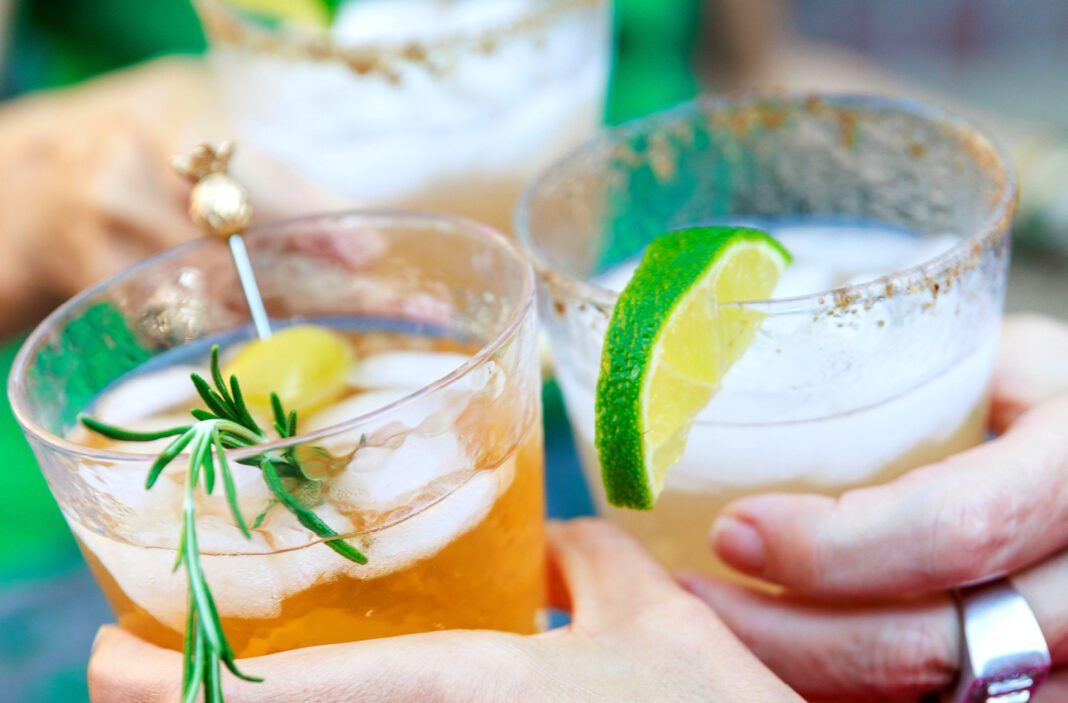
The sober-curious movement is just part of a push for greater health consciousness
Jim Urdiales says the best thing that happened to Mestizo was a review from a vegetarian blogger in 2012. “She basically wrote a thesis on how much she hated my restaurant,” he recalls.
Her beef? Lack of vegetarian options on the menu. To be fair, servers had been trained to point out non-meat options when asked. But, for Urdiales, the incident highlighted not so much a deficit but an opportunity to do better, change course and offer healthy options, which were being sought by a growing number of diners—whether they asked for them or not.
Over the past decade, Urdiales has designed entire drinks-to-dessert keto, vegetarian and gluten-free menus. And, while some other dishes remain true to tradition with rich cheeses and fried tortillas, Urdiales has even revised many original recipes with an emphasis on protein and fewer carbs.
“The No. 1 search they’re doing is ‘keto’ or ‘vegetarian,’ Urdiales explains, “and they’re coming to us because we show up high on that Google search.”
Based on the success of the frozen keto cocktails and customer inquiries, Urdiales introduced mocktails in June 2022. He was amazed how the drinks bolstered the bottom line.
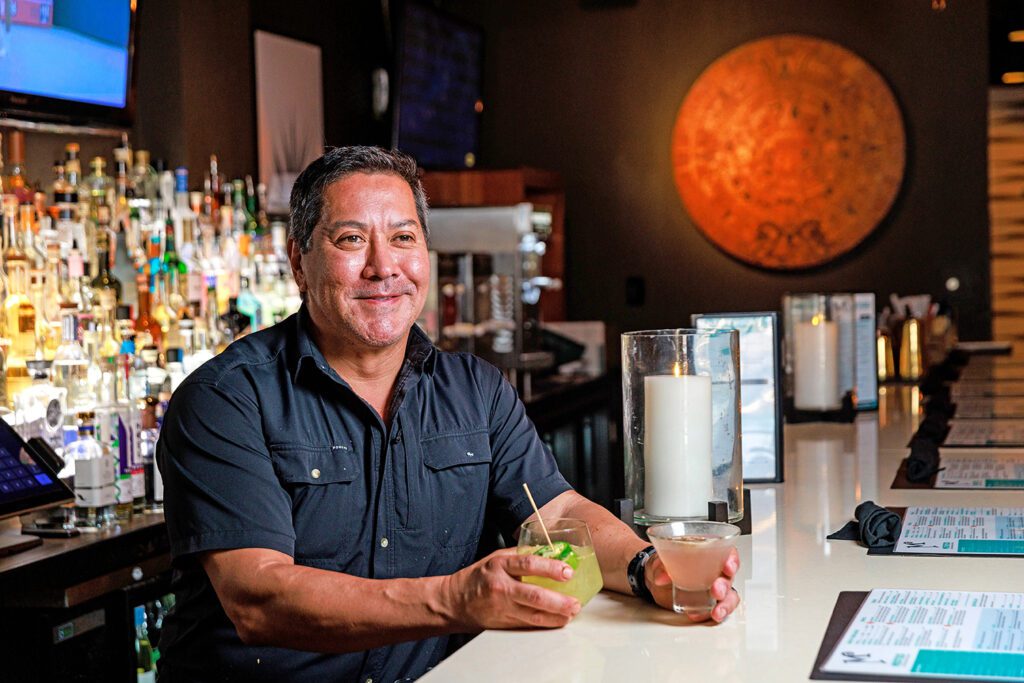
The alcohol-free drinks’ popularity has increased steadily beyond Dry January or Lent. “We’re seeing a lot of traction at lunch with people who want to just have a little something social to drink,” he reports.
The requests come from a diverse demographic including patrons who are looking to detox, can’t drink due to health reasons and potential medication interaction or simply want drink socially without accruing the effects of ethanol.
While this LA will never eclipse the other L.A. in extreme food fads, Urdiales predicts diner demand for healthier restaurant and bar cuisine and cocktails is here to stay. Sales figures confirm Baton Rouge bon vivants are becoming more health conscious and, subsequently, sober curious.
As a Baton Rouge General family physician who practices concierge medicine, Gunjan Raina has been on the frontlines advocating for this trend to take root within Baton Rouge.
“We normalize eating unhealthy foods and excessive alcohol intake in Louisiana,” says Raina. “As a result, the state is heavily populated with a lot of chronic illness—obesity, diabetes, heart disease and cancer.”
To combat the state’s high rates of cancer and chronic disease, health care organizations have increased prevention, screenings and access to care for underserved populations. However, that’s not the only demographic facing these issues.
“We’re seeing a rampant increase in the affluent population succumbing to the same illnesses,” reports Raina. “It’s not because they have lack of insurance or health care, it’s because it’s socially acceptable to over-indulge in food and alcohol, and there’s not enough awareness about the consequences.”
For example, years before disease develops or symptoms show, high fatty food and high alcohol consumption causes fat build-up on the liver.
“The amount of elevated liver function tests I see in a day blows my mind,” says Raina. “I have never seen this much fatty liver in my life—even in people as young as 20.”
Fortunately, abnormal values on a liver function, cholesterol, blood sugar or other tests are often enough to prompt patients to consider changing their habits. Still, Raina frequently doesn’t wait for the advanced lab values to have a conversation about how to improve health.
When a physical exam and questionnaire reveal persistent trouble sleeping, stubborn weight gain and overwhelming fatigue, Raina often encourages patients to explore whether diet and alcohol consumption could be the source of the problem.
“If they’ve been drinking three glasses of wine a night, it can be the equivalent of eating two chocolate bars before bed, and those empty calories add up,” Raina says. “So, by simply cutting down—or cutting out—alcohol, they typically see the difference in their midsection weight and overall obesity.”
Raina suggests patients who are considering limiting alcohol intake start with a single-day or weekend test run, which includes journaling about how they feel, sleep and look.
“It’s crazy how people feel so much better,” she says. “They come back saying, ‘That changed my life.’”
While guilt-free gourmet foods, alcohol-free spirits, books, therapy, meditation and medications can ease the transition, Raina says adult peer pressure—especially with regard to alcohol—poses the greatest risk of derailment.
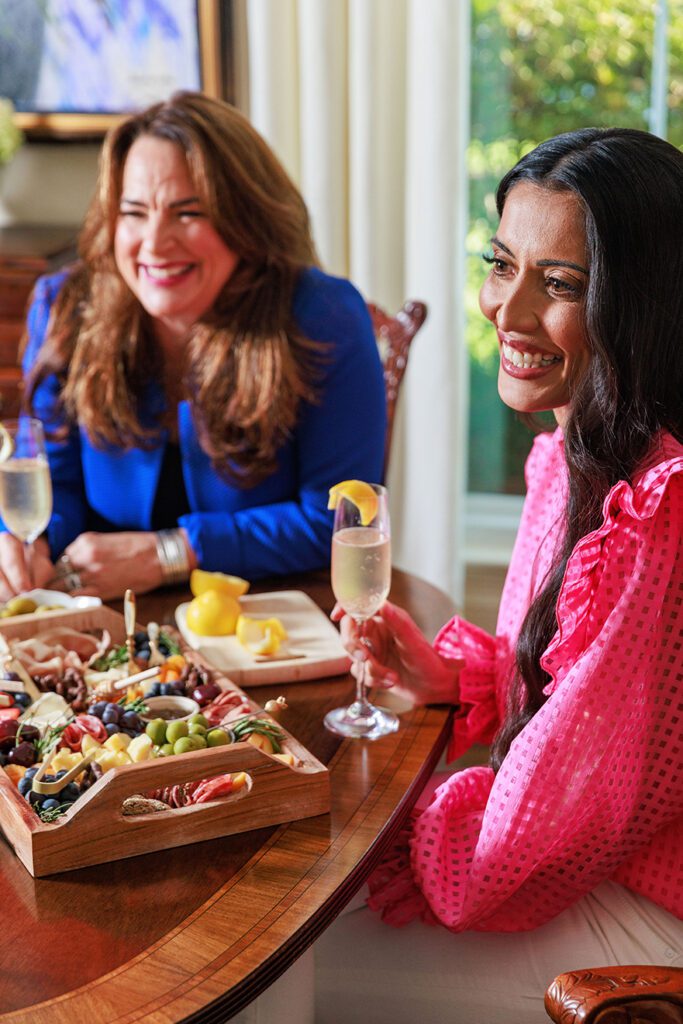
“Many patients are almost embarrassed to go to an event and not drink because they feel like they’re not fully participating,” she explains. “We need to change the thinking about alcohol. If you choose not to eat fast food or donuts, no one judges you. If you choose not to drink, it doesn’t mean you have a problem. In both cases, you’re just making a choice for your health.”
After being hospitalized with triglyceride-induced pancreatitis in November 2019, Chanler Holden Mittendorf followed a restrictive diet as part of her recovery. During the COVID shutdown, she transitioned to eating a largely Mediterranean diet. As sanctions lifted, she realized the need to reconcile her new health regimen with the return of her active social life.
“I love our culture,” says Mittendorf, a lifelong Louisianan. “I love that we all get together. I love all the food and drinks all around.”
Deflecting high carbs at crawfish boils and sugar-laced cakes at birthday parties proved to be easier than avoiding alcohol when invited to grab margaritas with the girls or beers at a barbecue.
“I never really feel like talking about the fact I’m not drinking alcohol,” she says. “I’ve always just had to have a cup in my hand. I still do. Now, it’s water or tea and a lime or lemon. I make it a pretty drink—a pretty glass with pretty garnishes—and nobody asks what I’m drinking. If it’s a girl’s night out, a luncheon or Christmas big meal, I’m still sipping, making toast and cheering—just not with alcohol.”
For Mittendorf, success comes down to mindset.
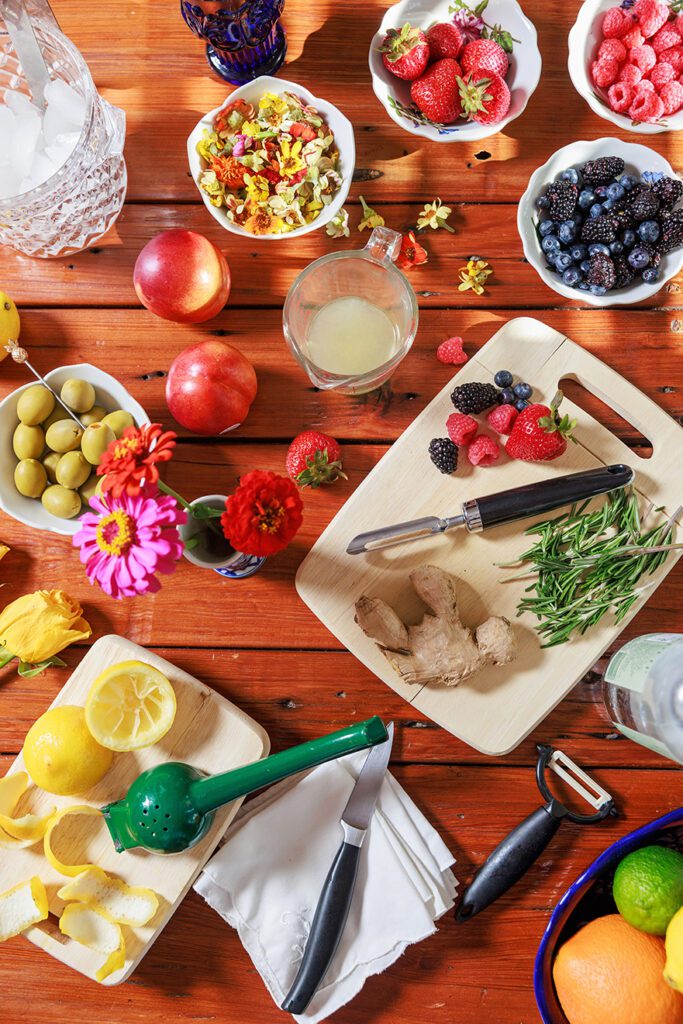
“The hard part is starting—and not thinking too far in the future,” she says. “Don’t tell yourself that you have to do it for the rest of your life. It’s a choice you make every day and gradually your habits change.”
Still, with Louisiana’s legendary culinary and cocktail traditions, temptation is impossible to ignore.
“It’s really tough to be strong in South Louisiana,” Urdiales says. “I still struggle with that myself because of the industry I’m in.”
After trying a lot of regimens, he advocates a 4/3 compromise. “You try to eat clean Monday through Thursday, knowing that Friday, Saturday and Sunday you’re likely to splurge,” he notes.
Raina also encourages patients to rethink their drinking habits during the week. “It’s similar to treating alcohol like you would a piece of cake and saving it for after special dinner on a Saturday night versus having two glasses of wine every night,” she says.
And staying the course doesn’t mean settling for water and a sad, unseasoned salad plate. The craft cocktail movement and culinary emphasis on clean, organic, farm-to-table ingredients has inspired the creation of healthier dishes on every fine dining menu. Ordering dishes such as Mestizo’s Pineapple Jalape“no” Margarita with keto redfish tacos instead of extreme nachos and multiple top-shelf margaritas somehow doesn’t seem like a sacrifice.
“These healthier options fit into our culture,” says Urdiales. “People can go out, be social and still find that balance of life.”









